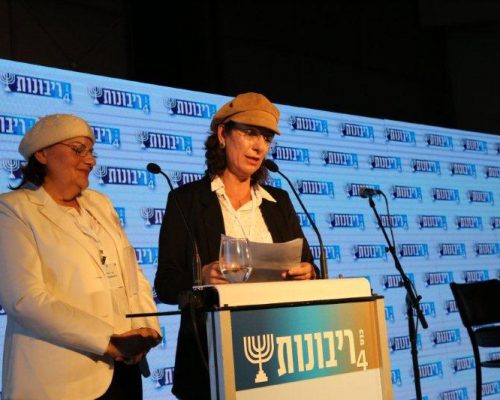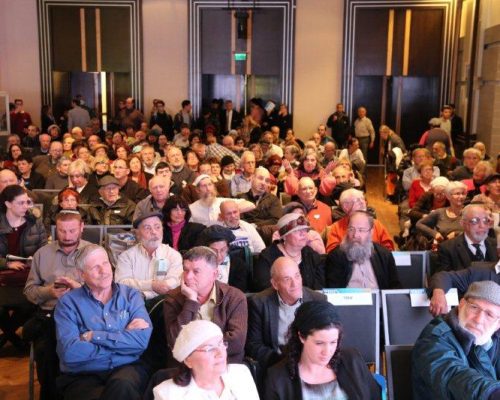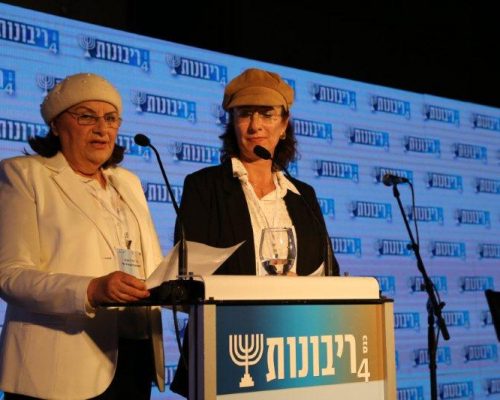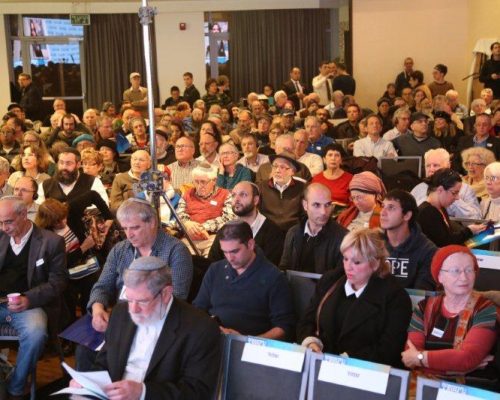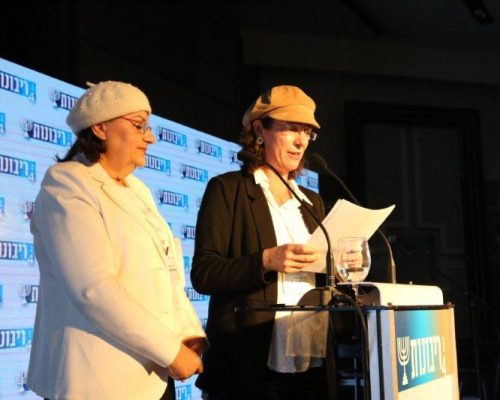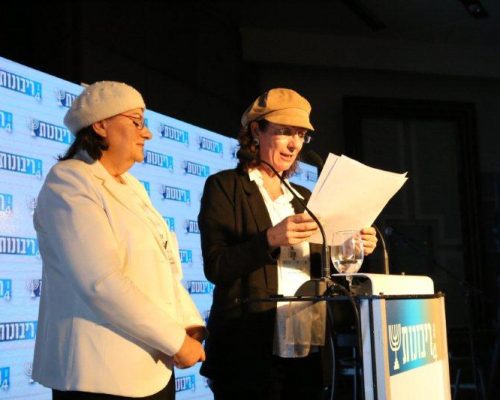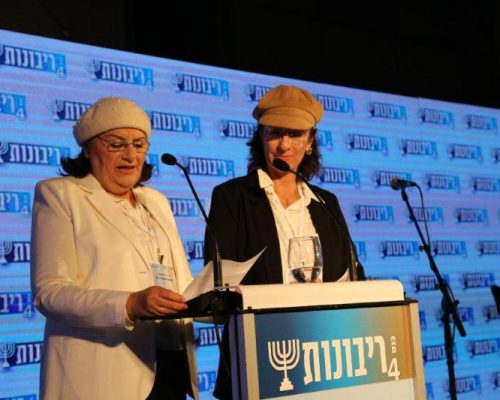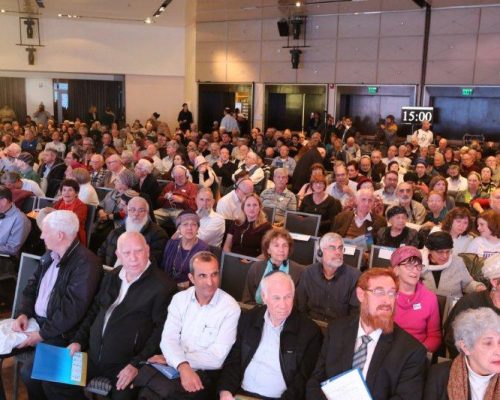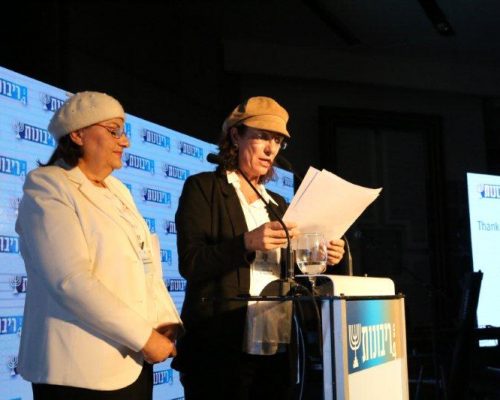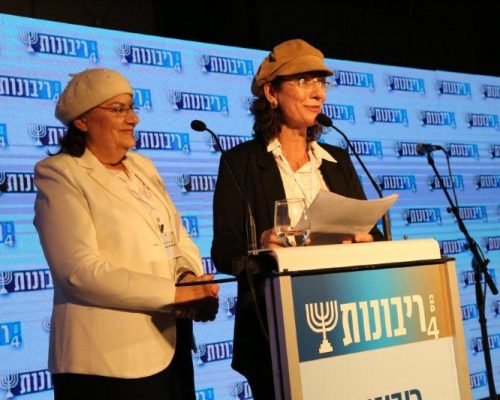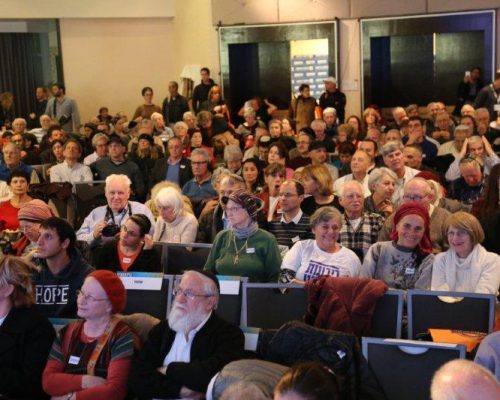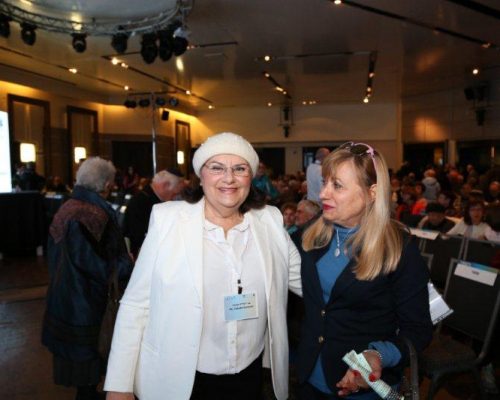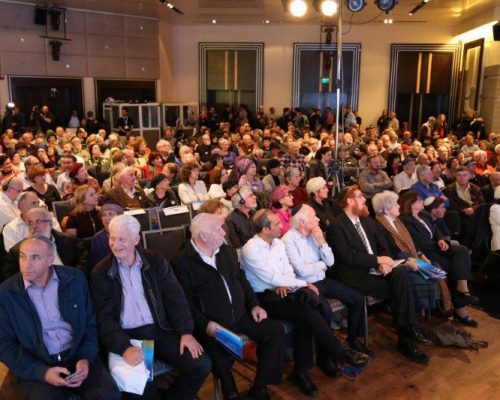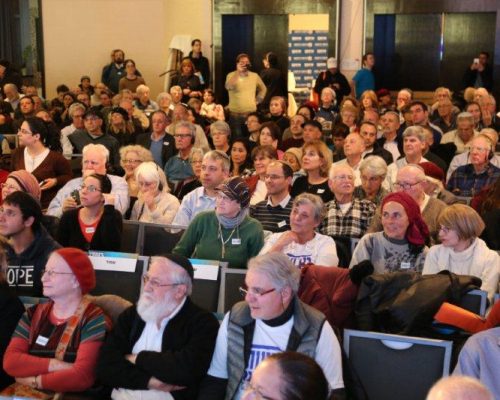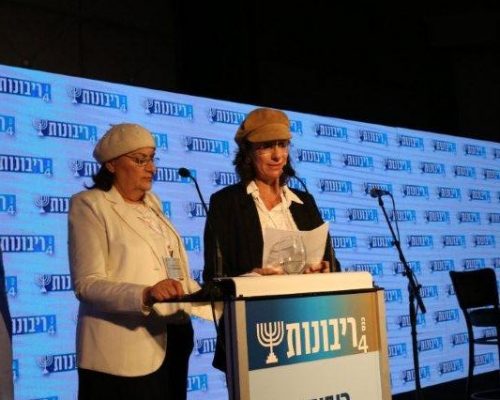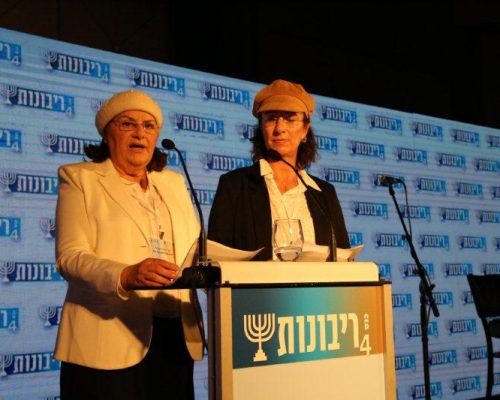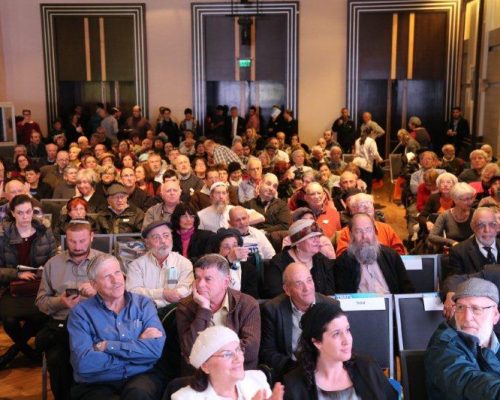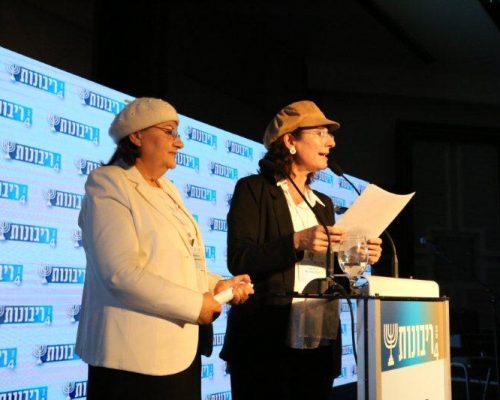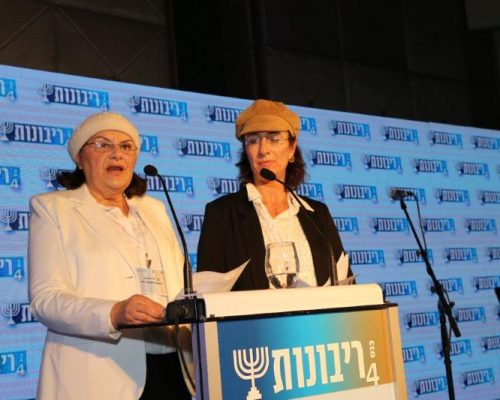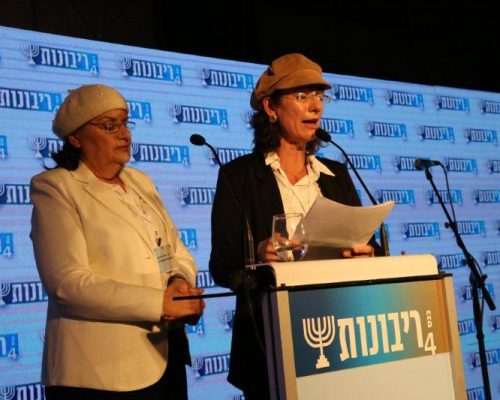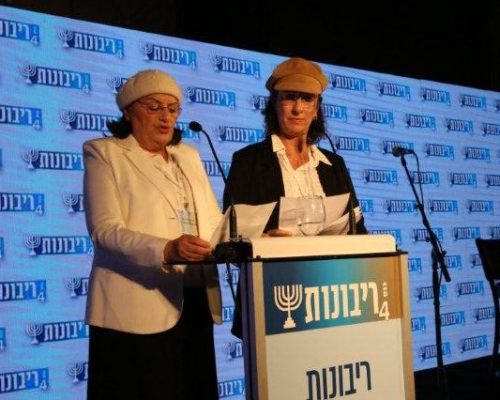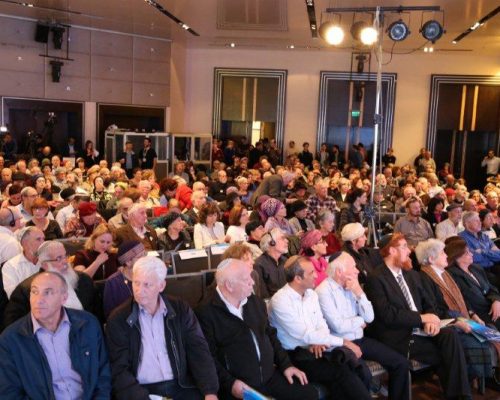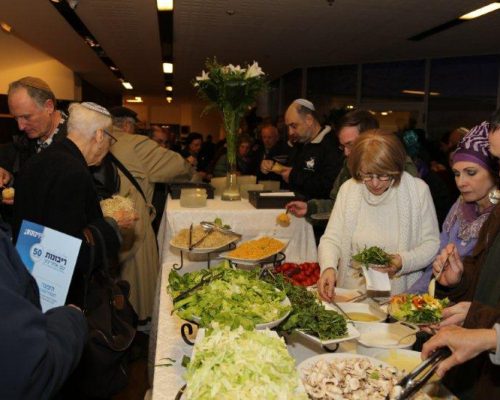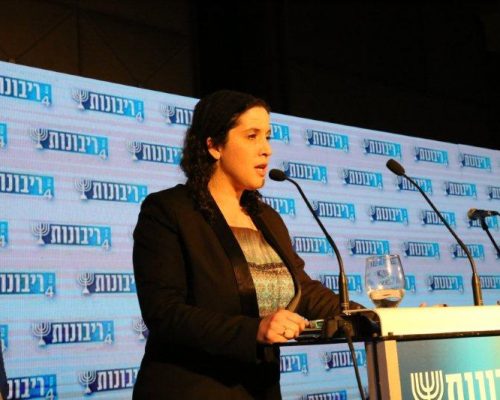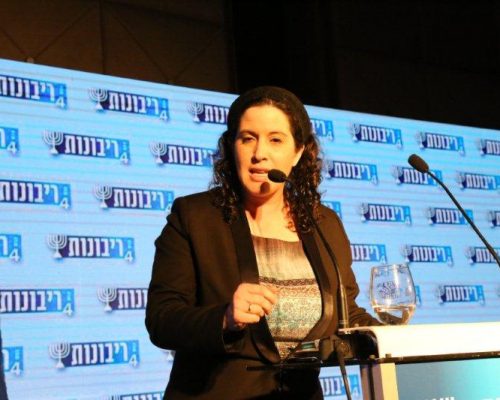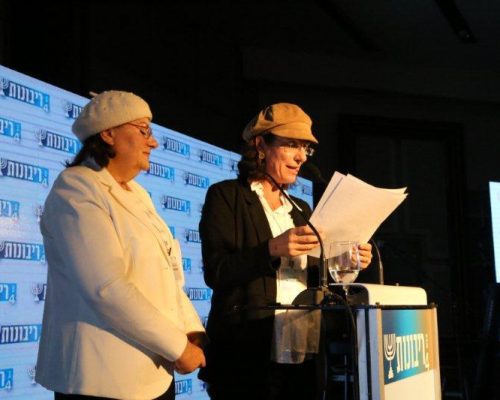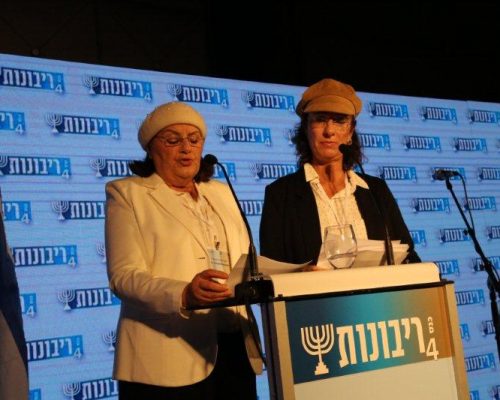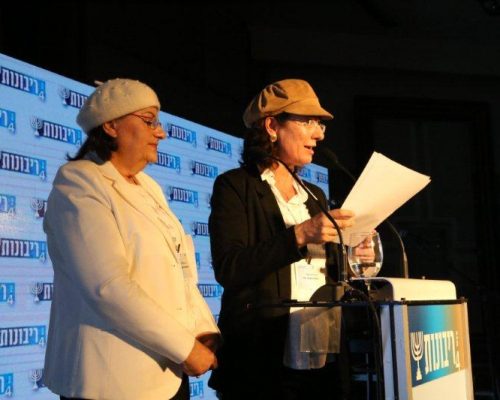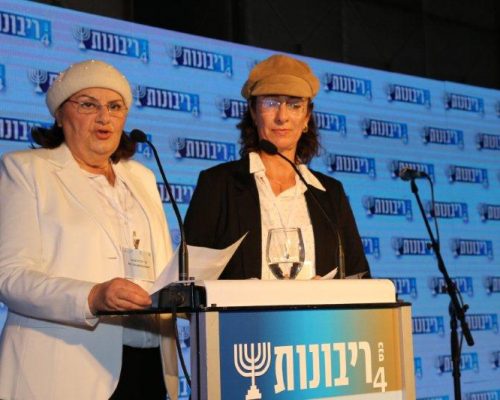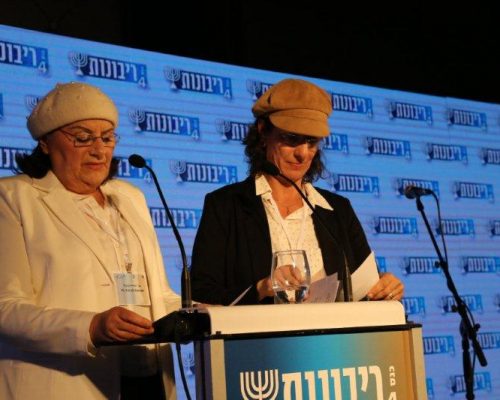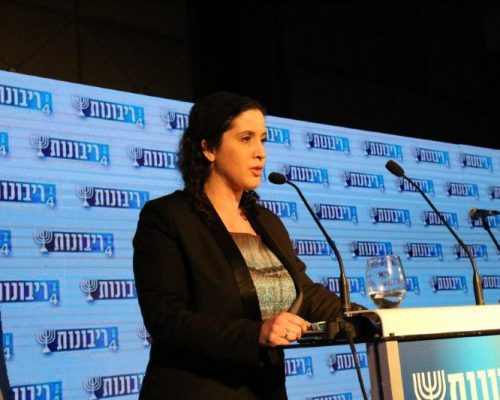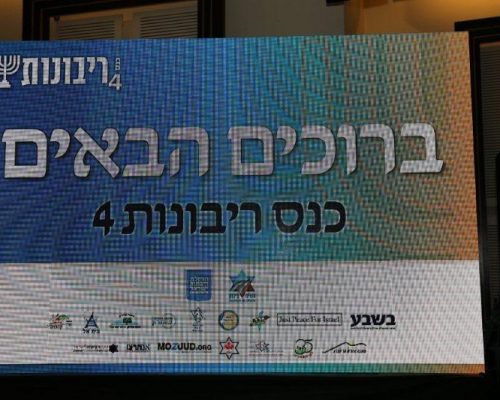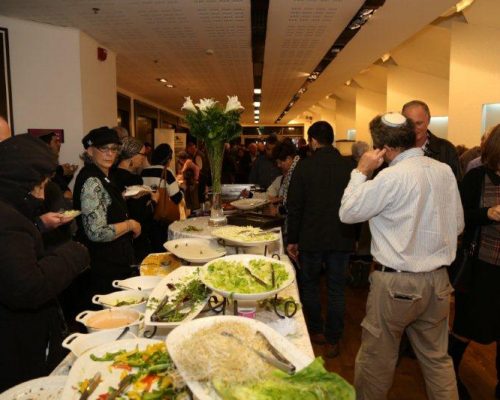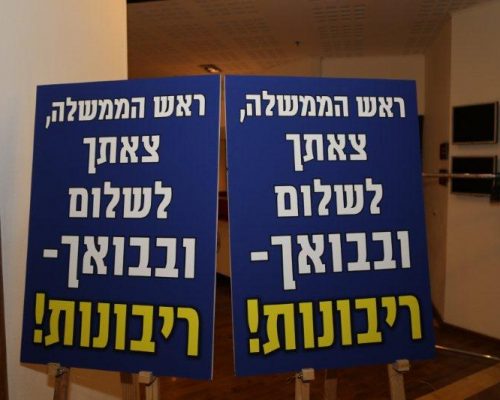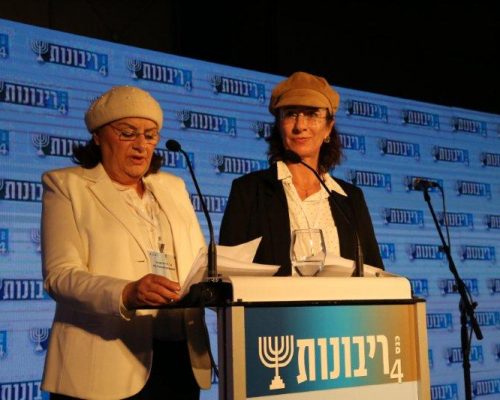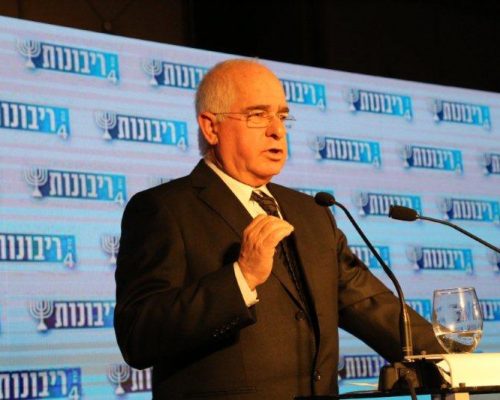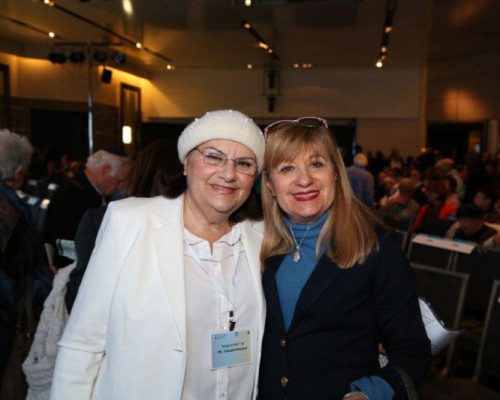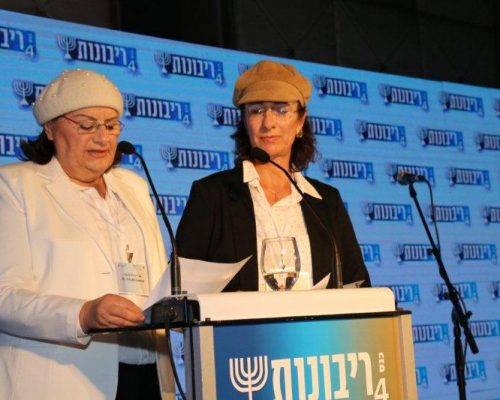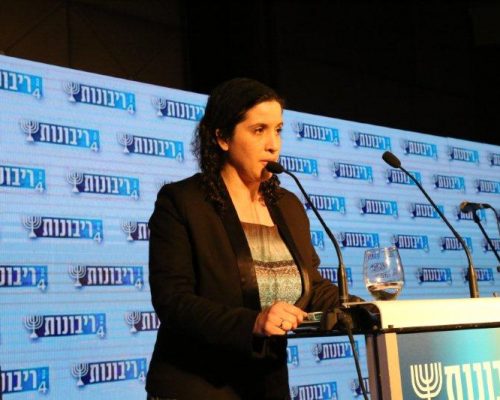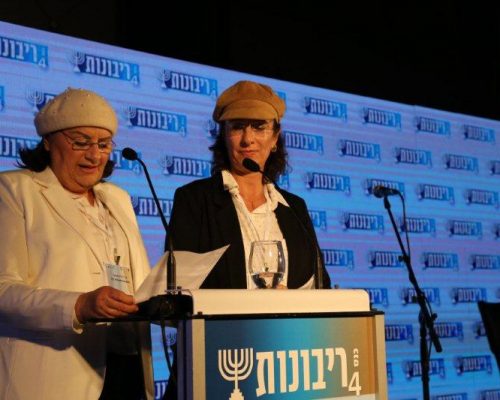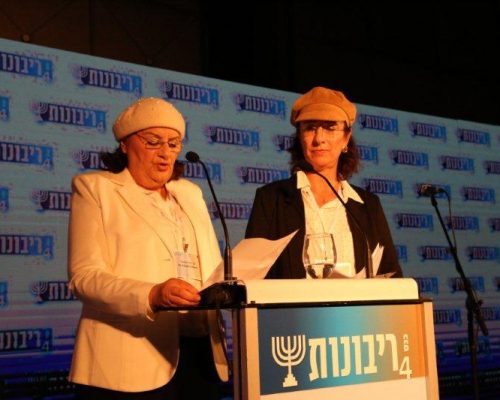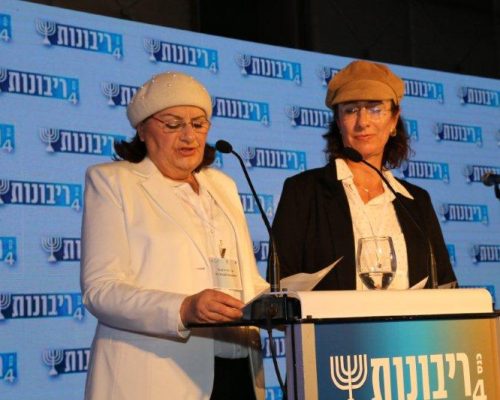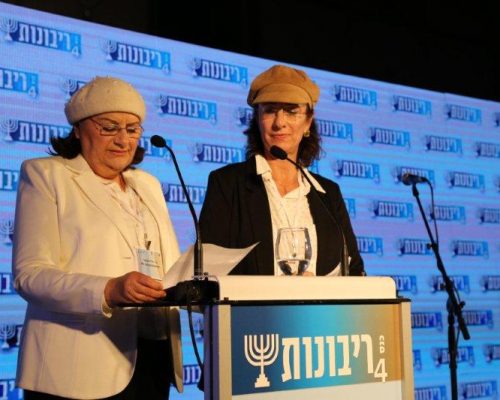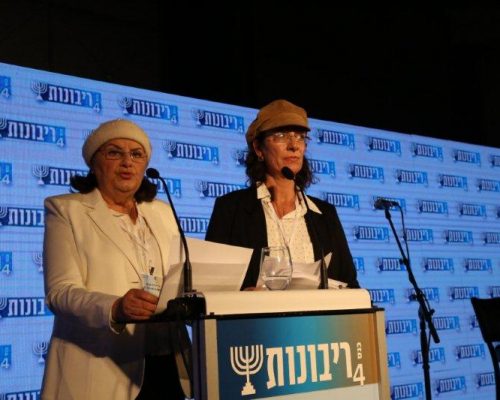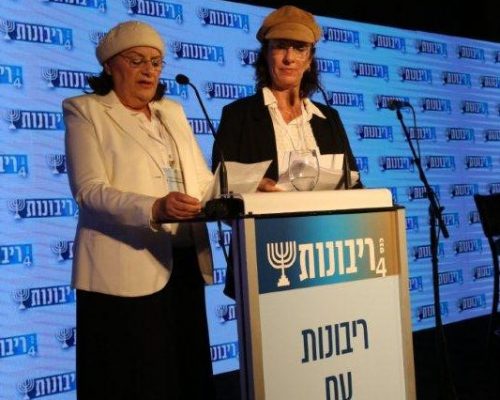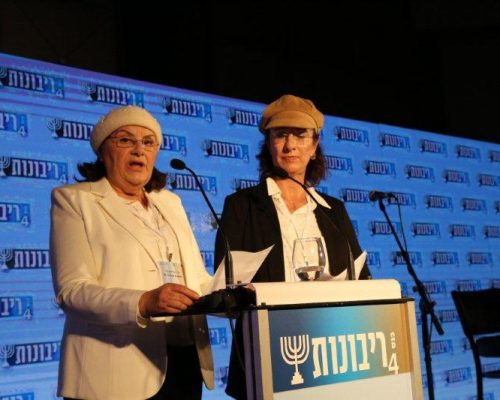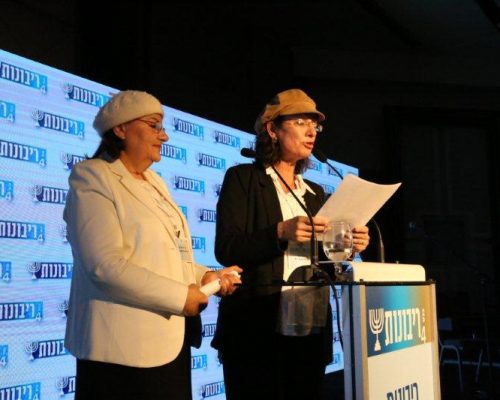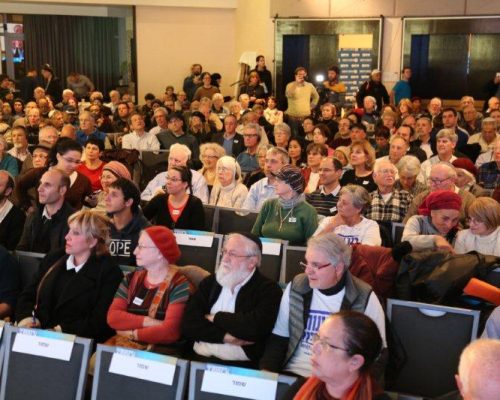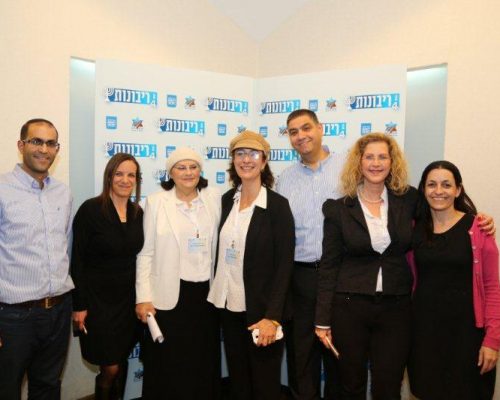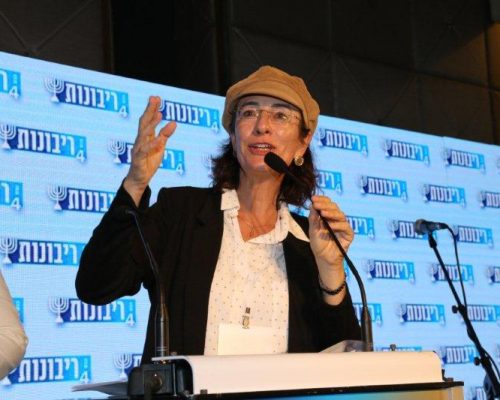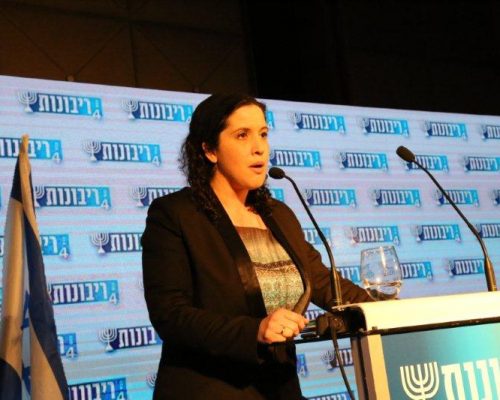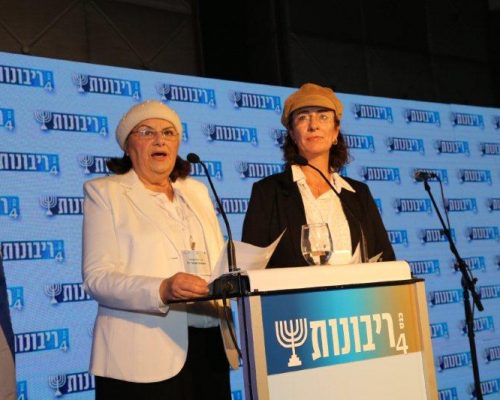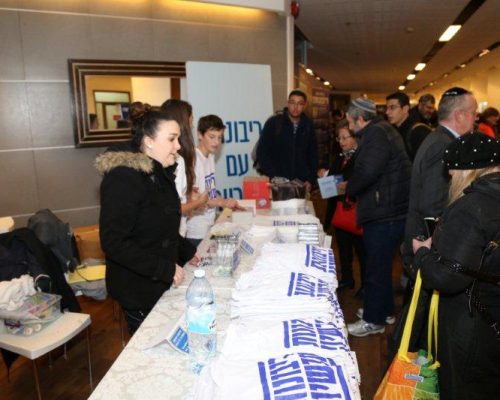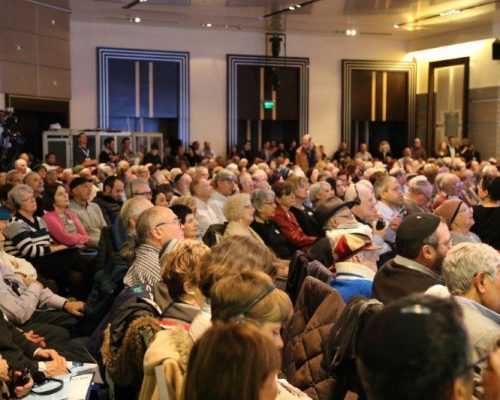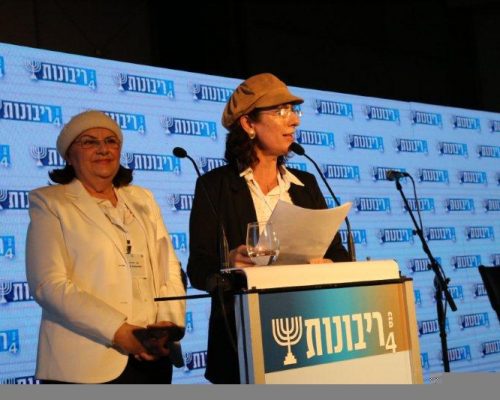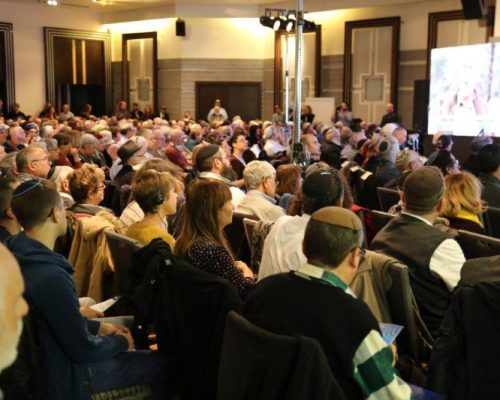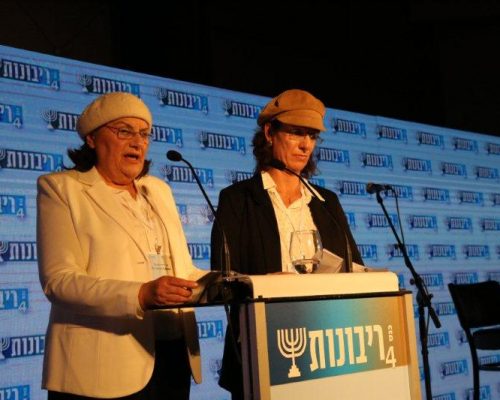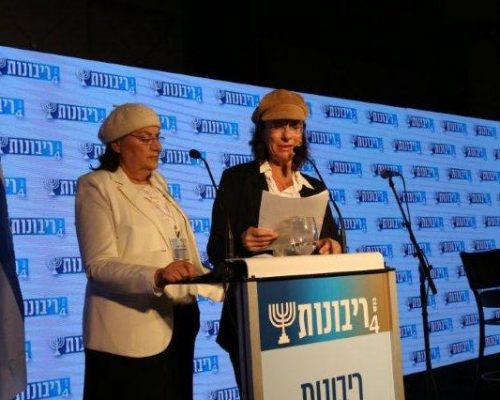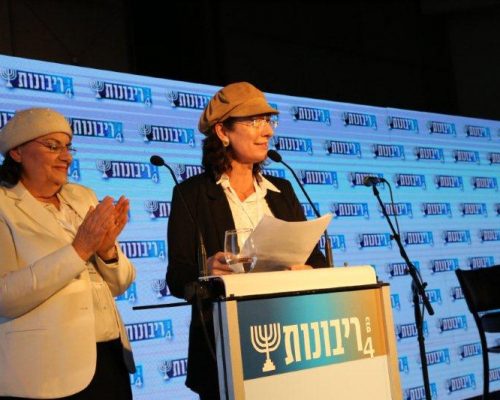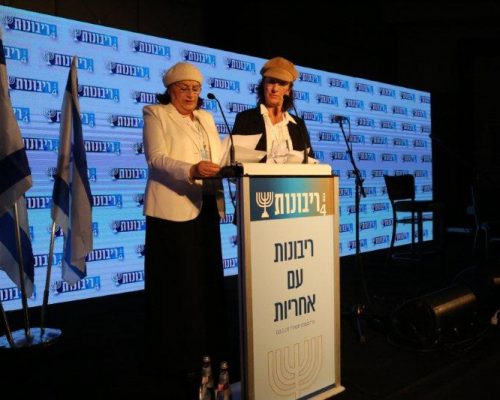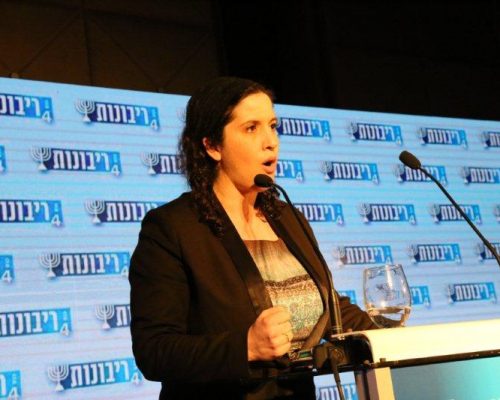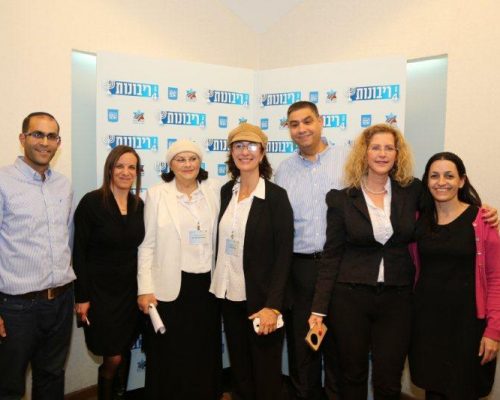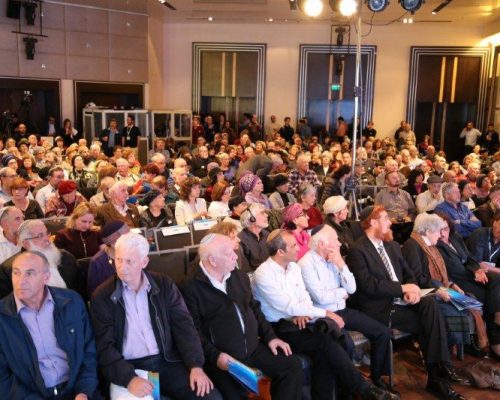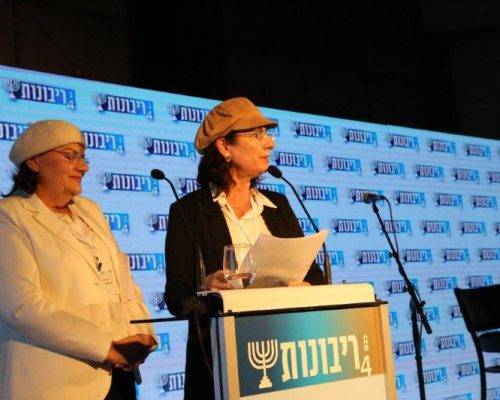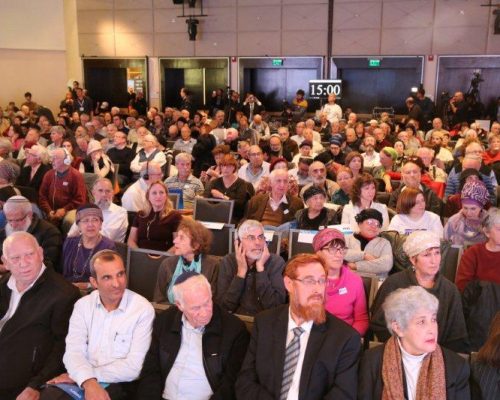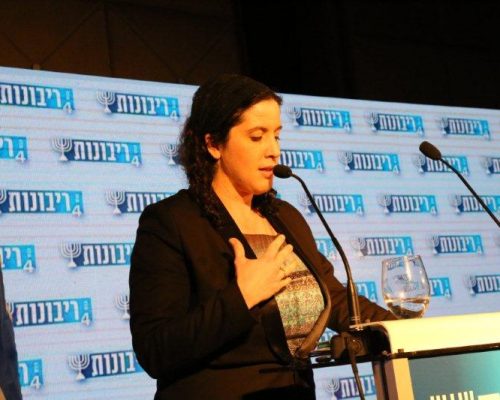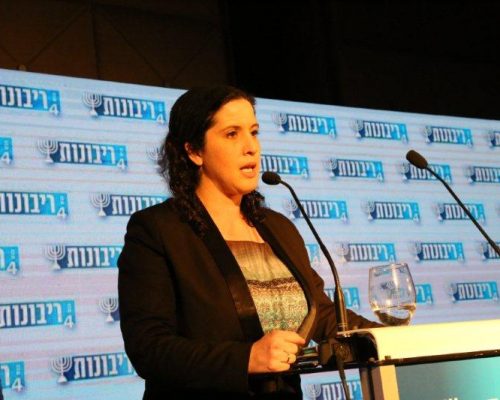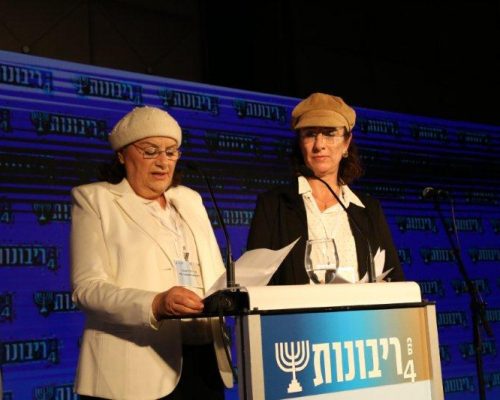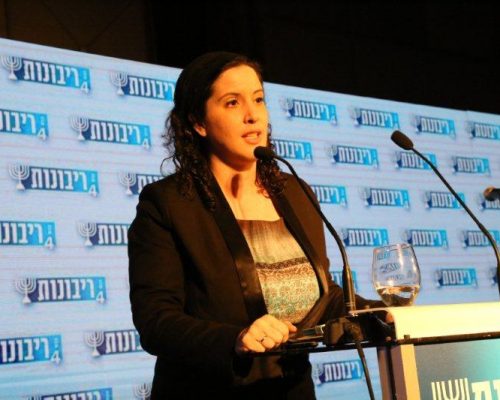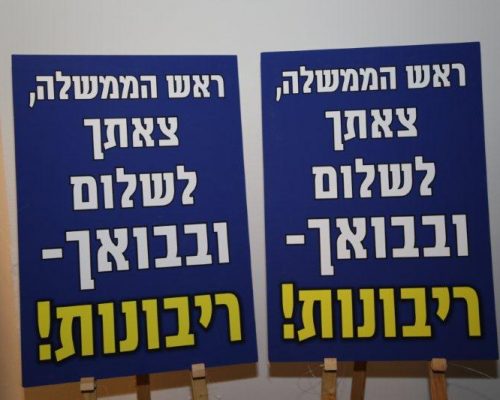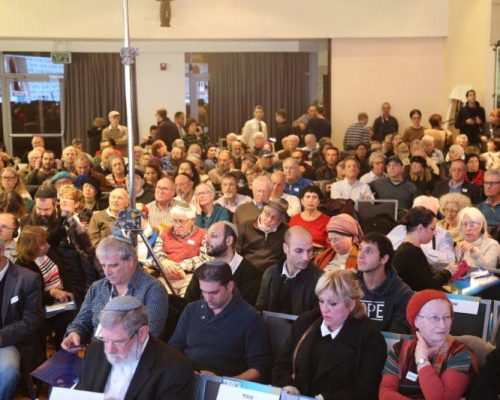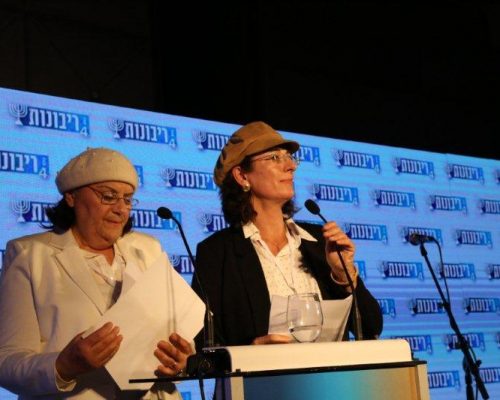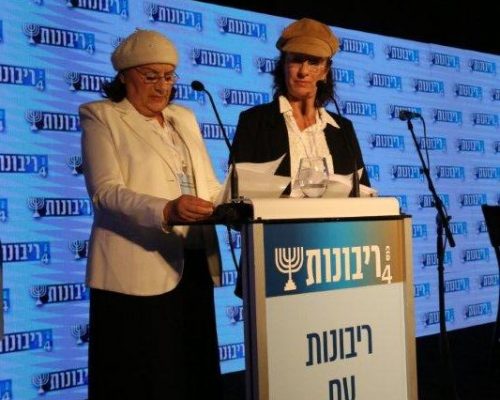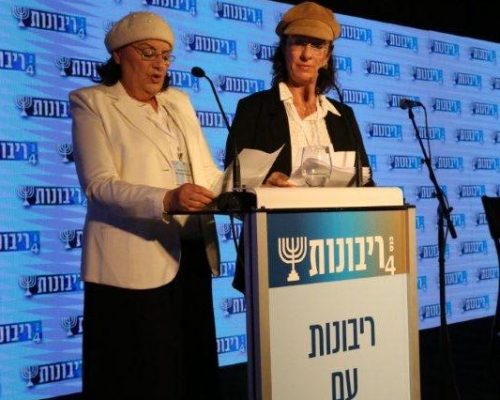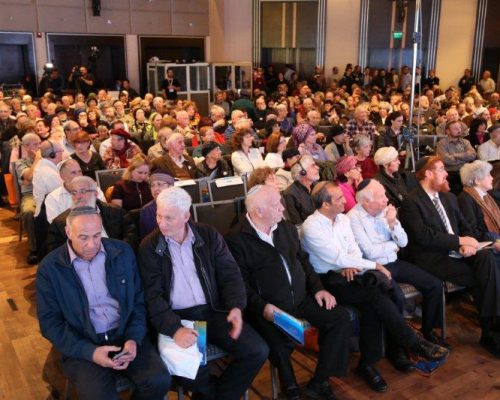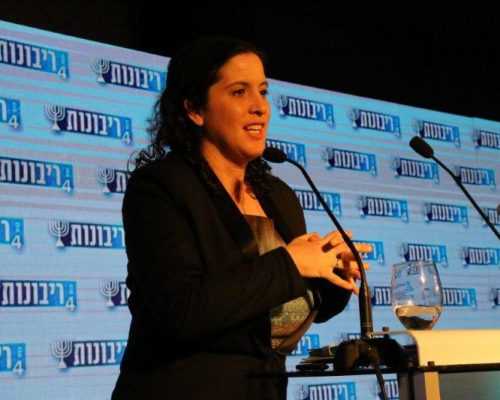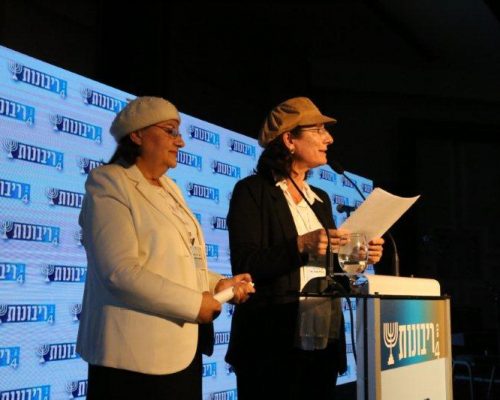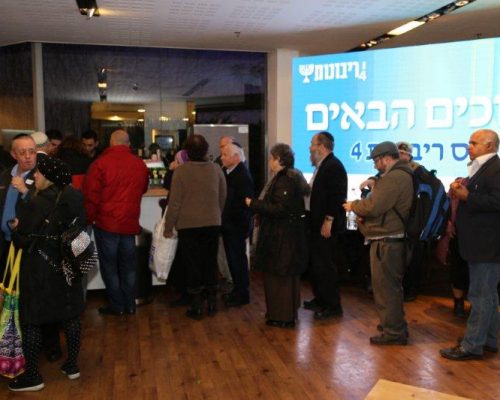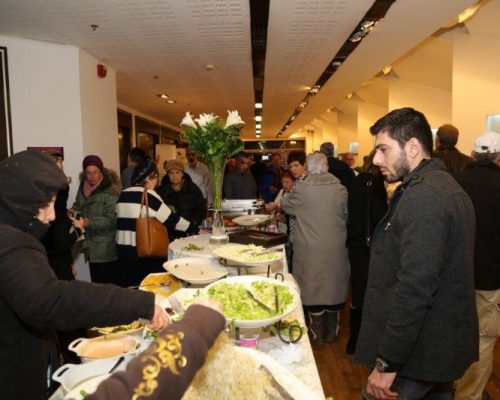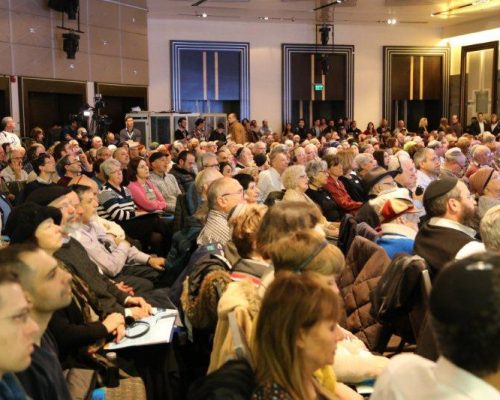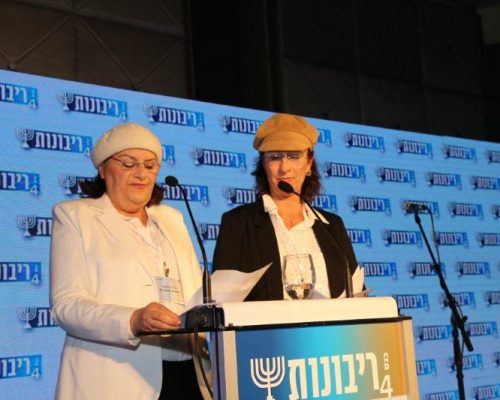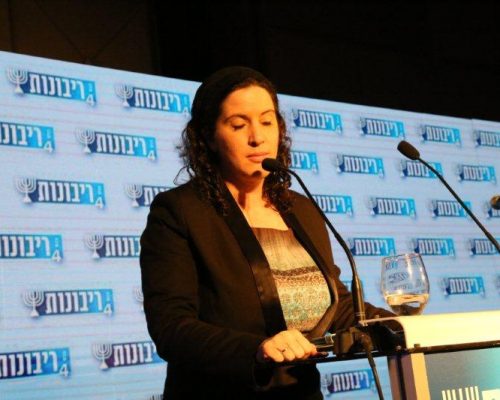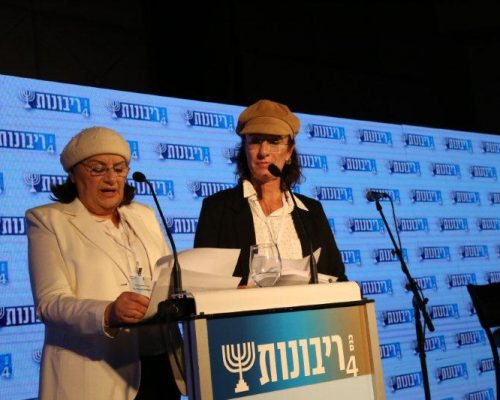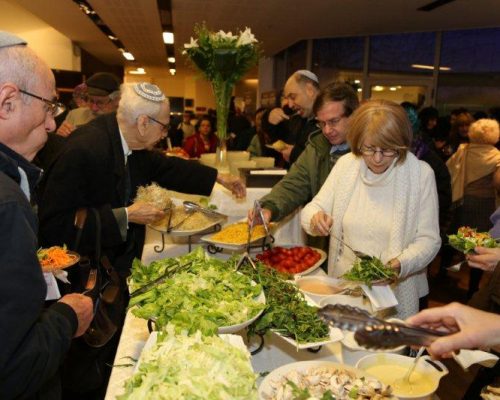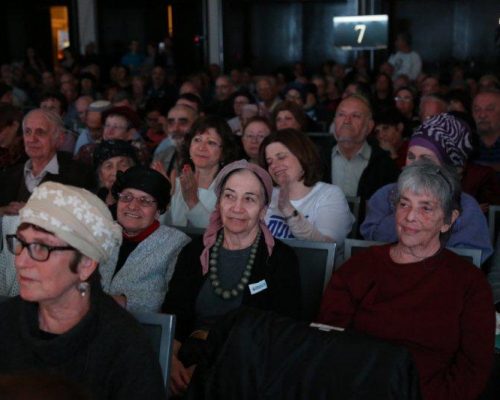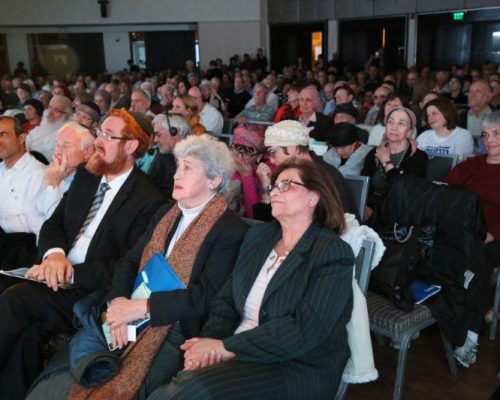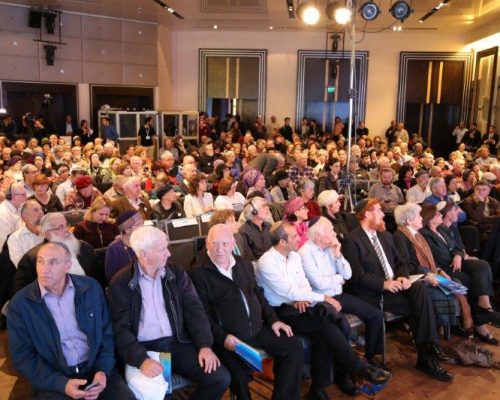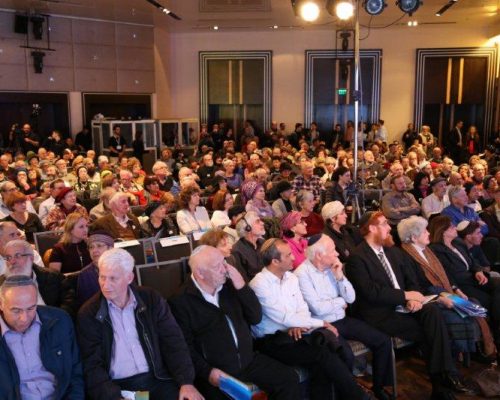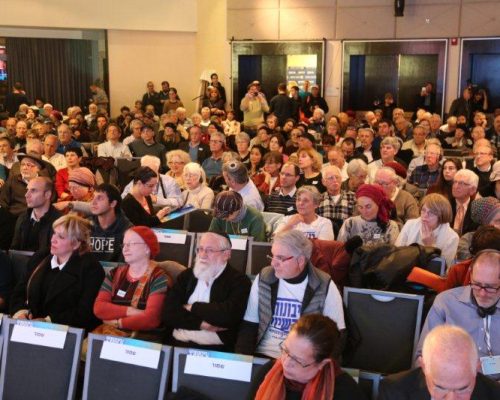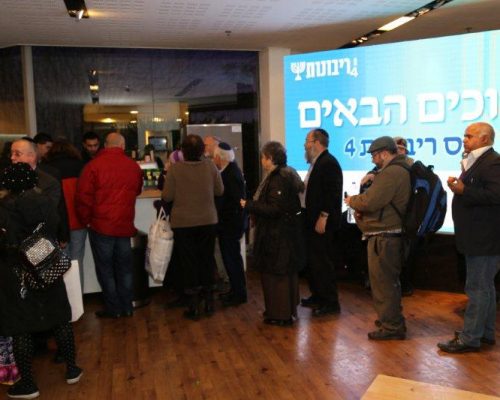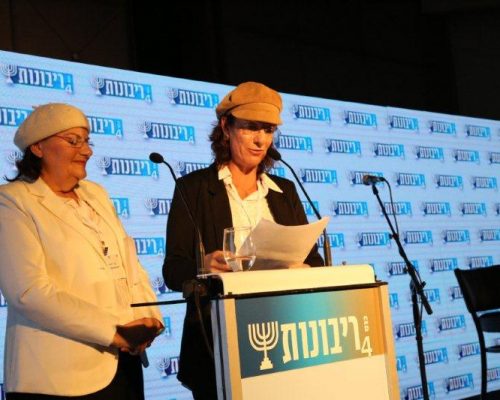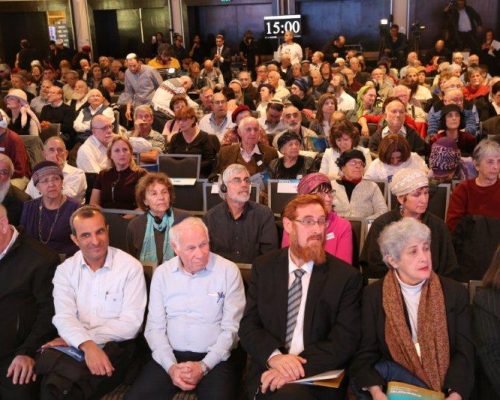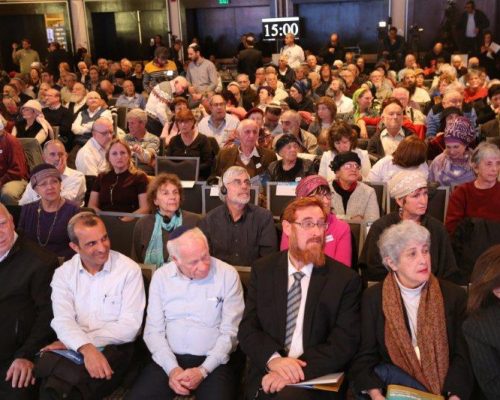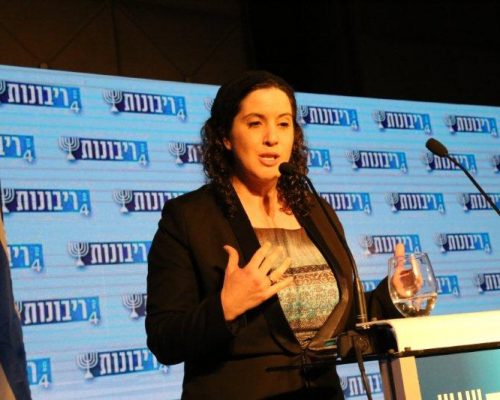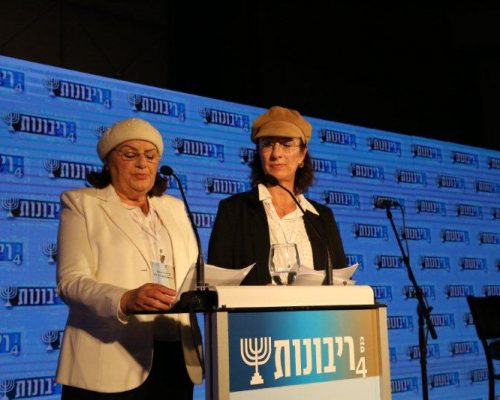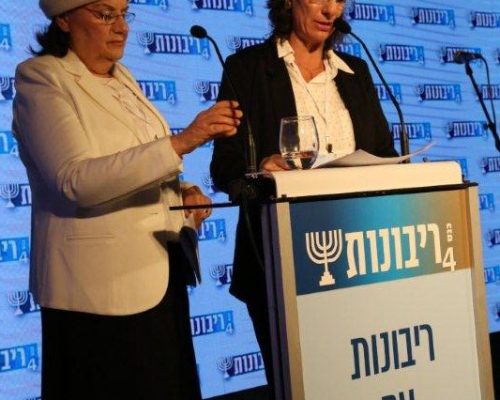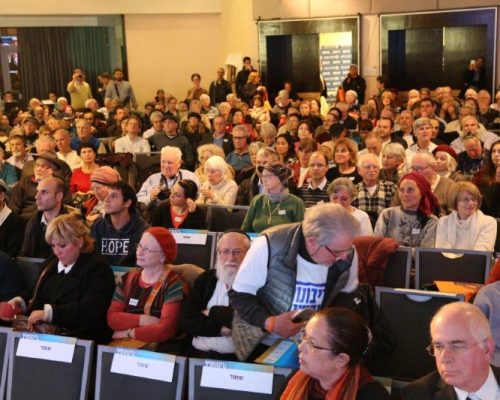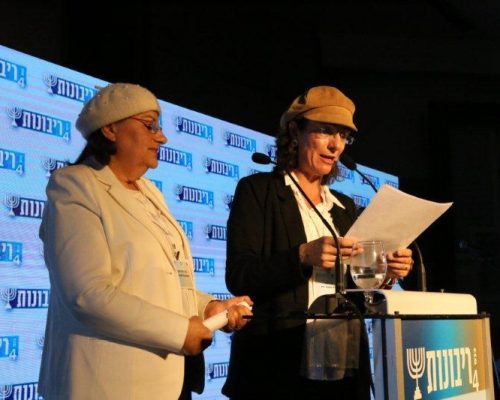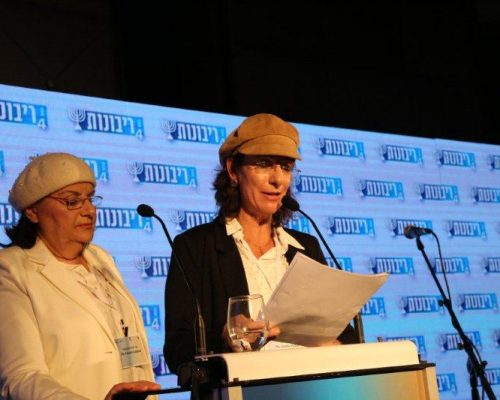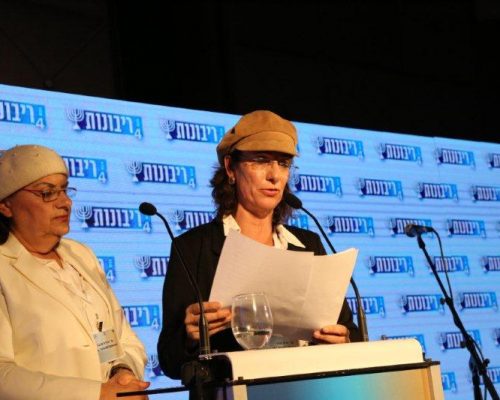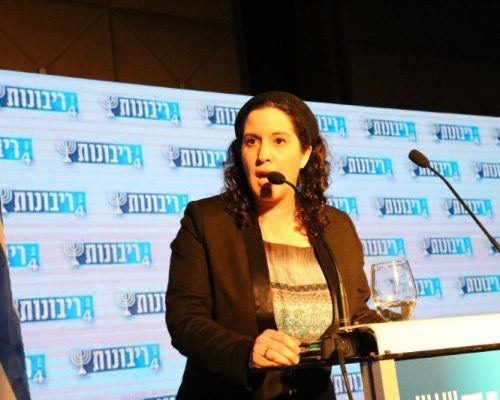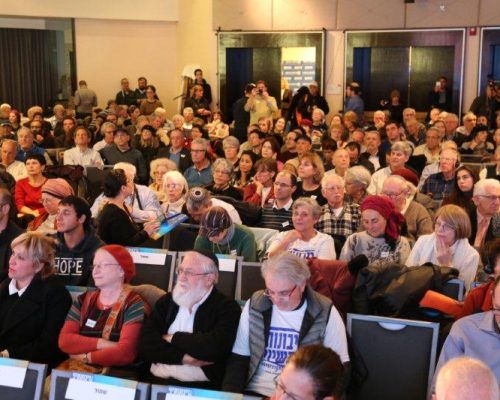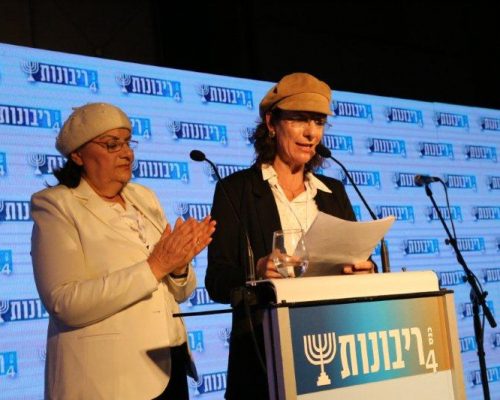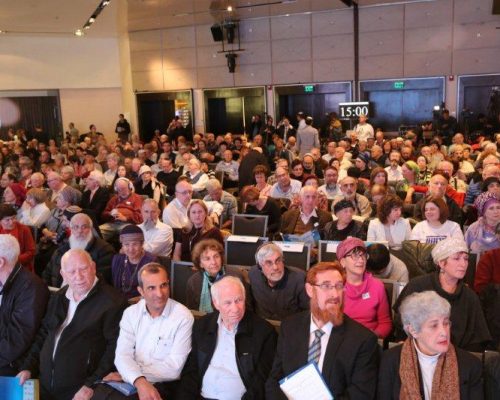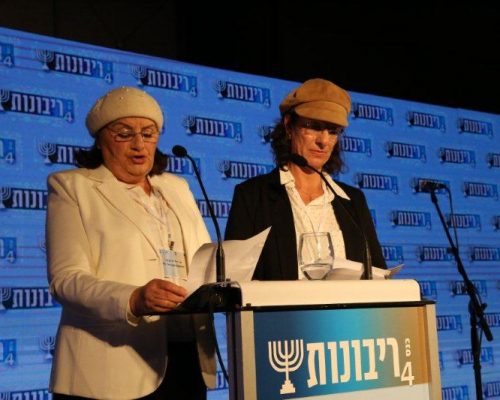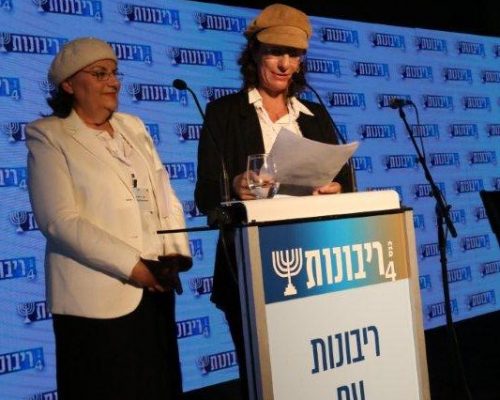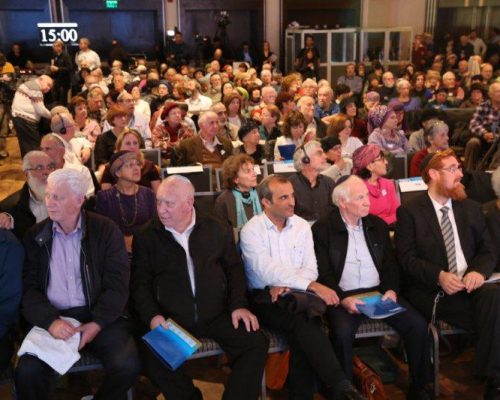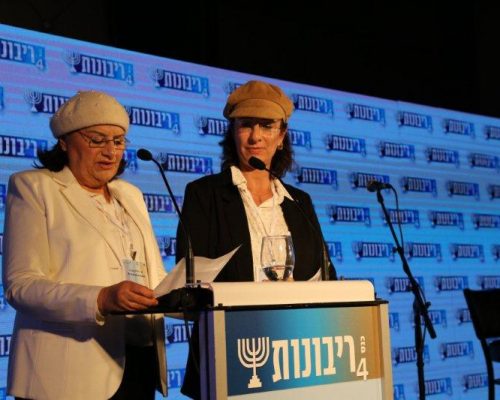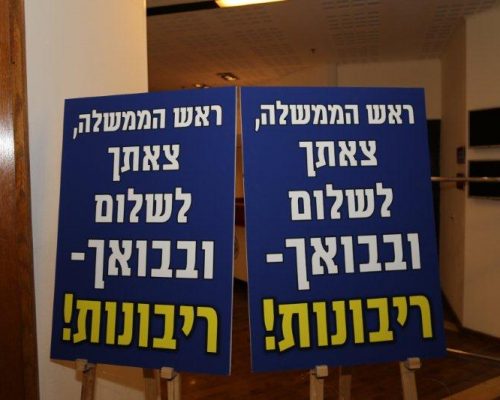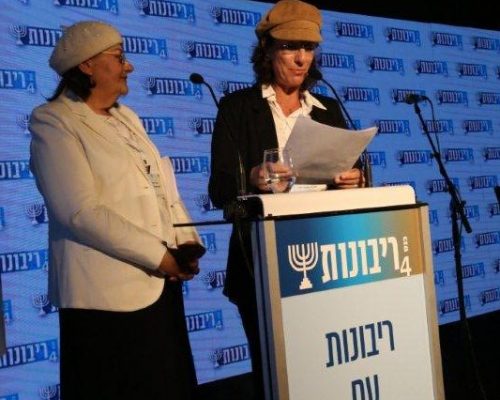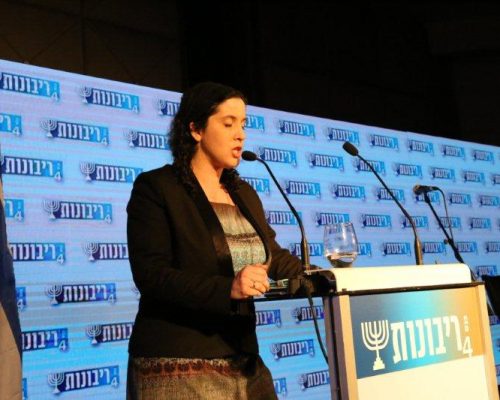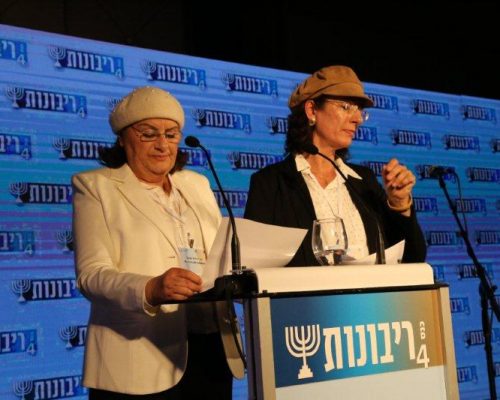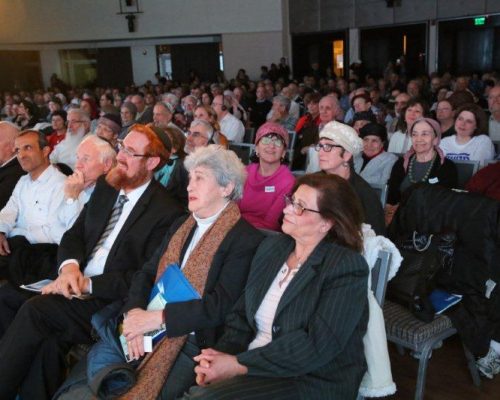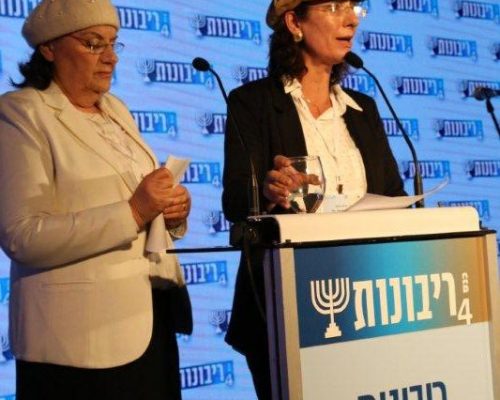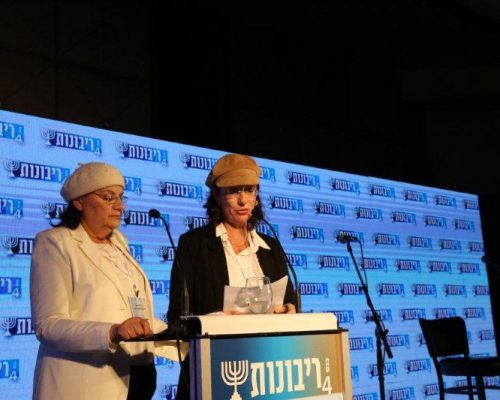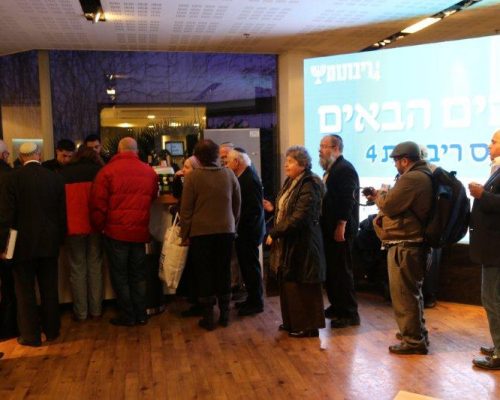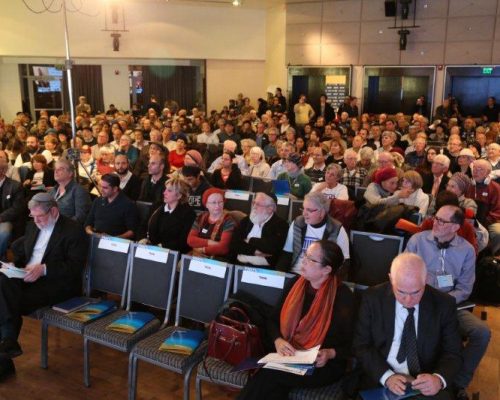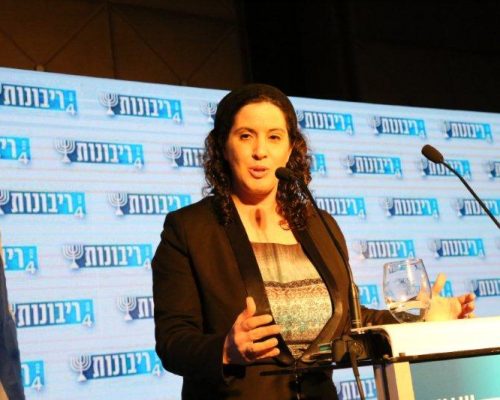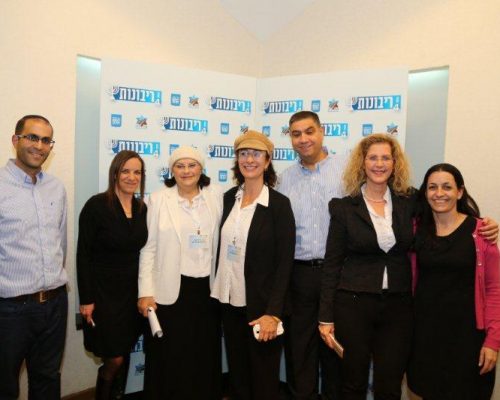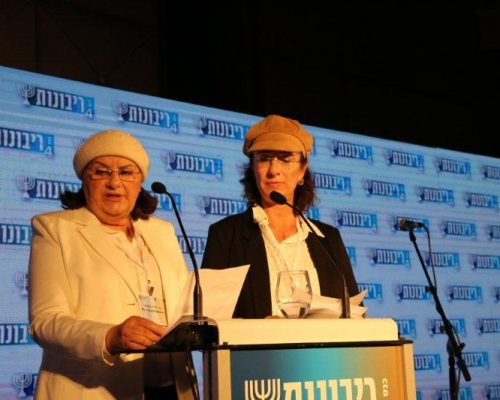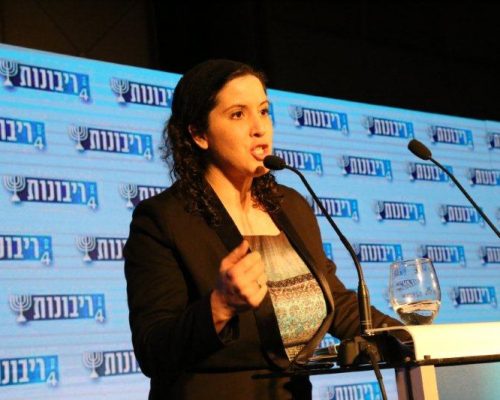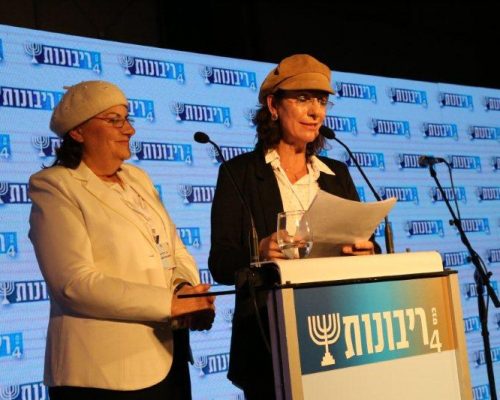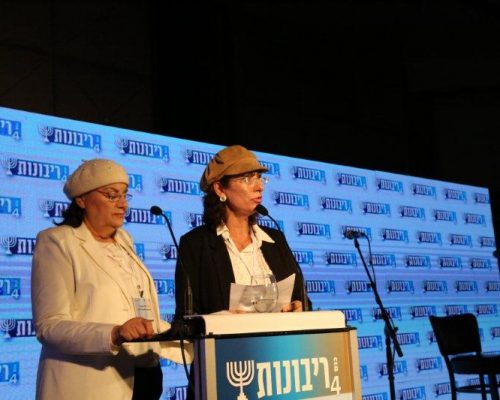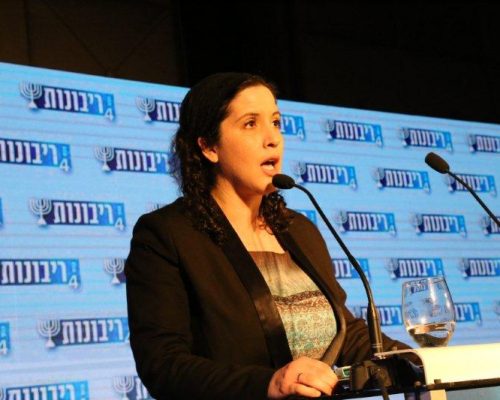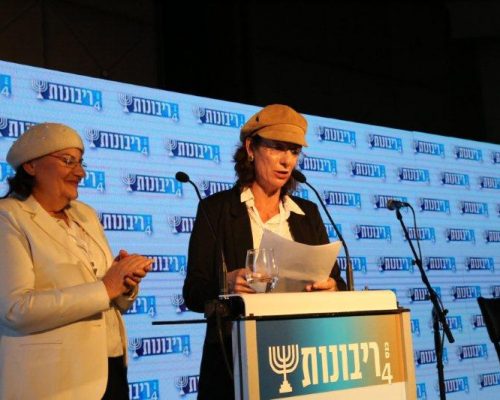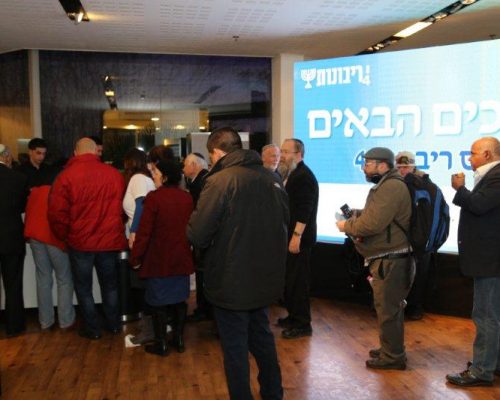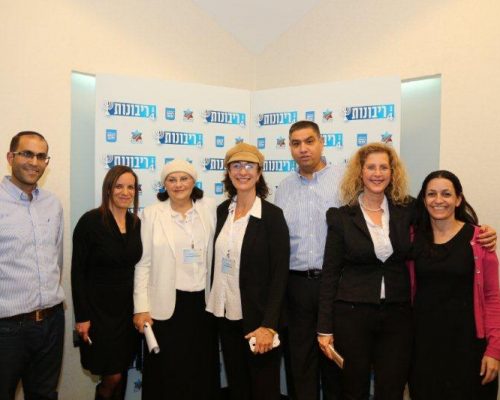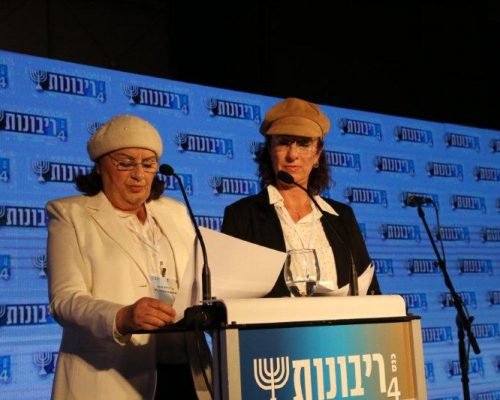‘The Time and the Mindset are Ready for Sovereignty. The Time has Come for Action’
Ministers, public figures and more than a thousand supporters of sovereignty participated in the Fourth Sovereignty Conference of the Women in Green movement, just before Netanyahu’s flight to his meeting with the American president, Donald Trump.
More than a thousand supporters of the vision of sovereignty crowded into the conference hall on Sunday night (12.2.17) at the Crowne Plaza Hotel in Jerusalem, where the Fourth Sovereignty Conference was held led by the Forum for Sovereignty and the Women in Green movement. Ministers, MKs, public figures, spiritual leaders and even representatives of the Arabs of Judea and Samaria, who support the process of the application of Israeli sovereignty over Judea and Samaria, took part in the conference.
The event opened with a sort of “newscast” where ministers, MKs and even American senators expressed themselves, blessing the attendees to the conference and encouraging the continuation of momentum toward the vision of sovereignty in the political and practical spheres.
After words of welcome and thanks from the heads of Women in Green, Yehudit Katsover and Nadia Matar, the speeches and lectures of the event began with a lecture by Zeev Jabotinsky, the grandson of the leader of the Revisionist Movement, who laid out the historical truth behind International Law, a law that stated even from the beginning of the previous century, that national rights to the Land of Israel belong exclusively to the Jewish People, including over Judea and Samaria. This fact, as well as the American law about the rights of the Jewish People in its Land, stated Jabotinsky, has been hidden and distorted by the media, which describes International law in such a way that considers the Jewish communities in Judea and Samaria as illegal.
Rabbi Avi Gisser, rabbi of Ofrah, spoke about the ethics and the justice in the vision of sovereignty and about the racism and avoidance of regional and Jewish responsibility inherent in the two state scheme. “The time is right, the soul is ready, there is awareness and now is the time for action”, said Rabbi Gisser, relating to the vision of sovereignty, and noted that we are not afraid of the demographic aspect and millions of more Jews are expected to come to Israel from all over the world.
Emmanuel Shiloh, editor of the periodical Basheva, which stood behind the entire production of the conference, presented, in summary, the various proposals regarding the status of the Arabs of Judea and Samaria after sovereignty has been applied and the challenge inherent in each of the proposals. Later, he presented his view, supporting the proposal of Minister Bennett, to apply sovereignty in Area C and grant a status of citizenship to the Arabs of this area, where their demographic influence would be slight.
Likewise, Shiloh also spoke about the first step of sovereignty, which, in his opinion, should not end with Ma’ale Adumim, but with a much larger and more significant step. Since we expect to pay a political and public relations price, it would be more correct if the first step of sovereignty was more dramatic, so that it could negate the future possibility of establishing a Palestinian state. For this reason, Shiloh believes, sovereignty should first be applied in the Jordan Valley, which is included in the consensus, along with additional areas.
Minister for Jerusalem Affairs and Environmental Protection, Zeev Elkin, also spoke, repeating the view that the proper way to promote the vision of sovereignty is in phases, which he likened to “the Arab salami method”. According to him, Israel has the obligation to apply sovereignty on the every possible area. “We must do this and it is a timely task, more than any other time”, he said.
Later on in the evening, the Sovereignty Prize was awarded to Uri Elitzur, obm. The prize was awarded by Minister of Agriculture Uri Ariel, who defined Elitzur as “my teacher and mentor”, to Yael, Uri Elitzur’s widow, who also spoke, and told of his words in the last months of his life, when he stated that the task remaining for him to do in his life is to embed the obligation for sovereignty in Israeli discourse.
Minister Ariel expressed his emotion on seeing the open discussion around the vision of sovereignty and also related to the matter of the Temple Mount, saying: “The reality that they (the Arabs) are above and we are below is not Jewish, not reasonable, not acceptable and it should not be so. Such a reality wherein a minister cannot ascend the Temple Mount by the directive of the prime minister will not be, and we will not accept it”.
He sealed his words by relating to the Netanyahu-Trump meeting, and called on Netanyahu not to surprise the American president, as is accepted between leaders, and to tell Trump that “we intend to annex all of Judea and Samaria quickly”.
Head of the Council of Judea and Samaria, Avi Roee, stated that: “This is a historic moment for the People of Israel. And you shall proclaim liberty in the year of the Jubilee. This is a historic moment for the leadership to take courageous decisions even if they seem problematic in the eyes of the Americans or the Europeans, and if we hesitate slightly, heaven sends us the U.S. president, who speaks straight. How many signals does the People of Israel need in order to understand that this Land is ours? Is there anyone among us that still doubts it? If, after ’67 the government had taken the decision to apply sovereignty, no one would have remembered the noise today and we would already be ruling from the Jordan to the sea, because this is the natural thing”.
Head of Samaria Council, Yossi Dagan, spoke, focusing on the economic aspect of sovereignty and mentioned the expected reduction in the cost of housing with the easing of land sales in Judea and Samaria for building, increased immigration of Jews who now are reluctant to immigrate to Israel because of the high cost of living and housing and other aspects that strengthen the advantages of sovereignty.
Acting head of Gush Etzion Council, Moshe Savile, presented the civil difficulties in the reality lacking sovereignty, a reality that brings severe harm to human rights and equality under the law, apart from the essential failure of the civil administration, with its patchwork of mandatory, Turkish and military law.
Afterwards, Deputy Foreign Minister MK Tzipi Hotovely awarded the Sovereignty Prize to journalist and authoress Caroline Glick for promoting the idea of sovereignty in her book, which has won broad resonance in Israel and abroad.
MK Hotovely stated that “In the years when we did not dare to seek sovereignty, we lost out, we lost the right, the truth, the Israeli story. In those years when we told the world that we can solve the matter with compromise, because we are a people that seeks peace, we did not deal with the battle for Israeli justice. Anyone who does not believe in his right to live in Shiloh, Eli and Beit El, has nothing to look for in Tel Aviv, Herzeliyya and Rishon Lezion”.
After these words, began the panels, with Dr. Yoaz Hendel, Caroline Glick, publicist Dr. Dror Eydar and Prof. Avi Diskin speaking first.
Dr. Hendel claimed that the time has come for Israel to determine her interests, and with this approach, the areas of consensus will become defined, around which the People of Israel will unite. Among other areas, it is the Jordan Valley and the settlement blocs where, in his opinion, it is possible to enlist the aid of the American president in the importance of Israeli control of these areas.
Caroline Glick stated that “We must be courageous and not fear. Not be messianic or delusional. To understand that there are difficulties” and she declared that “we have not yet realized the idea of a unified Jerusalem”, and for the sake of understanding the difficulties and the challenges inherent in sovereignty, Israel must have basic facts such as the number of Arabs living in Judea and Samaria, a data point where there is a dispute between the false Palestinian count and the data of an independent research institute that arrived at totally different results. Without clear data of this sort it is impossible to progress in the necessary and serious discussion of the question of sovereignty.
Prof. Avi Diskin admitted that he does not know what is the right and proper goal for Israel, but cautioned against taking a step that is too radical and would be considered by the Palestinians as significant pressure that would lead the international community to force a solution upon Israel that is not good for her.
Dr. Dror Eydar believes that the process of sovereignty must be done patiently since Israel is just a babe, from a broad historical point of view and it is not possible to place on her shoulders immediately, the entire burden of full sovereignty. “We have a lot of time. My wife’s grandmother was in Auschwitz and today we are seven million Jews , so where will we be in another seventy years. We must have patience and faith”.
In the second panel there were Arab guests, Muslim and Christian, who participated, expressing their support for Israeli control that would bring an end to the corrupt rule of the PLO, and would lead to prosperity and coexistence with two peoples, side by side.
In this panel, journalist Shalom Yerushalmi participated, presenting a gloomy demographic scenario that would bring about, in his opinion, the social and economic collapse of the State of Israel, and as evidence of his words, Yerushalmi brought up Jerusalem, which, before ’67, was 98 percent Jewish and now there is serious concern that the Arabs of the city will become mobilized and might bring about the election of an Arab mayor, a step that would succeed, in his opinion, only they desired it.
In response, Prof. Aryeh Eldad claimed that Yerushalmi’s approach is racist, since it sees the Arabs of Jerusalem as having one status and one vision. “You want a racist ghetto of Jews”, Eldad slammed Yerushalmi, and stated: “The manipulation that the Left uses to frighten us with demographics has eroded. We are no longer frightened by demographics”.
Eldad added that if the State of Israel does not strengthen the voices of the Arabs who wish to live under her sovereignty in peace, the forces that support terror will increase and murder them as has happened in the Arab past in the Land of Israel.
The conference ended with a sort of newscast of the future, where the advantages of sovereignty were described in the aspects of security, the environment and the economy, and with the joint singing of Hatikva to the large audience that filled the hall for all hours of the fascinating conference.

